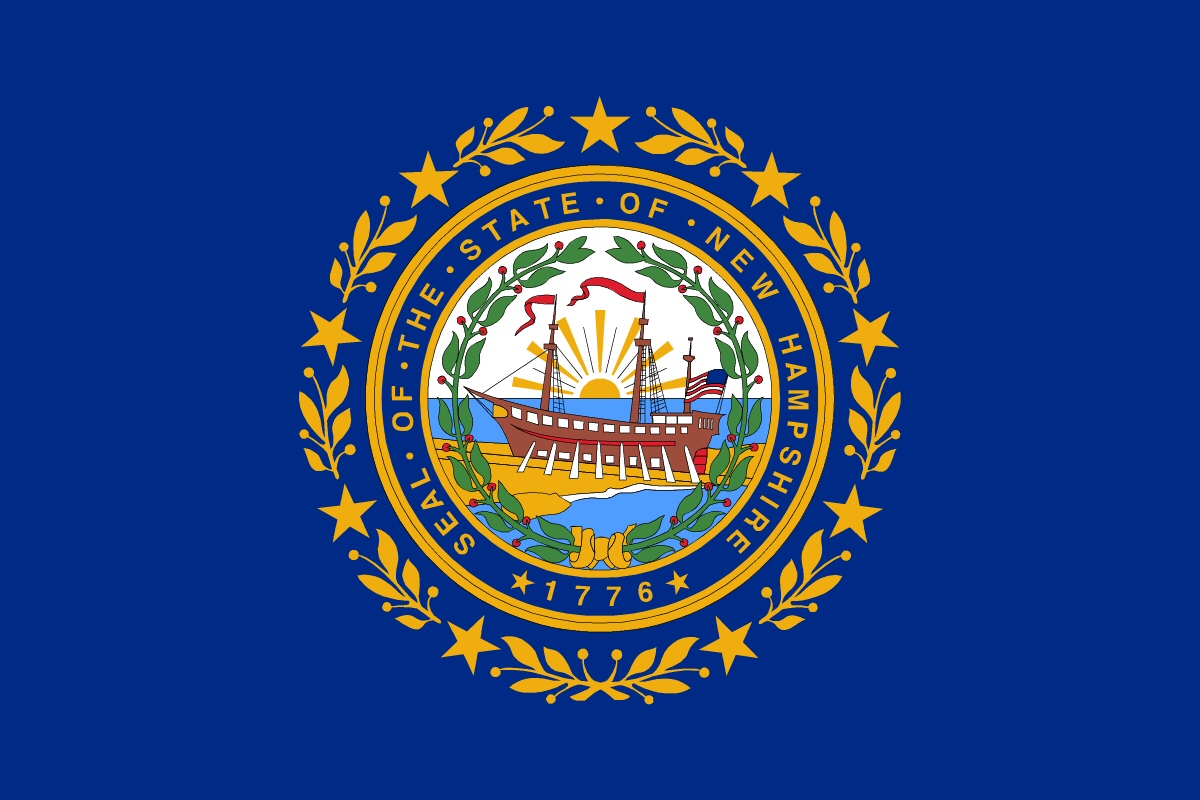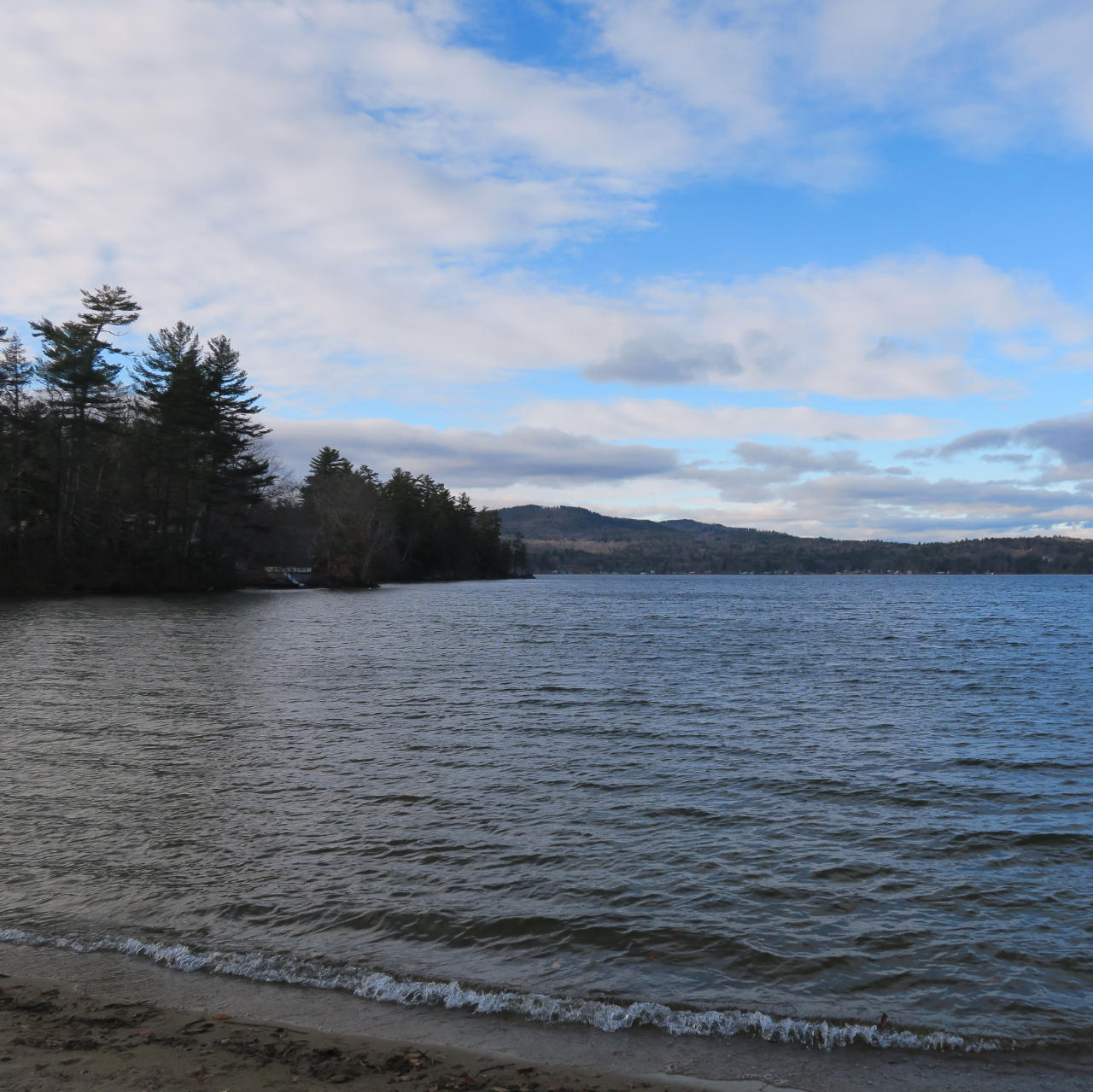State of New Hampshire Short-Term Rental Regulations
Short-term rental regulations vary depending on the location and may include zoning laws, occupancy and safety standards, taxation, licensing, and insurance requirements review our guides for more information specific to your city.
Reviewed by Derick Hargrave
Last updated September 24, 2023

Overview of New Hampshire Short-Term Rental Regulations
Information is maintained by the community to provide helpful insights and links to local regulations, HostScouts does not provide legal or investment advice.
With idyllic small towns, quaint inns, majestic mountains, and classic New England charm, New Hampshire attracts over 9 million visitors annually. When vacationing in popular destinations like Portsmouth, the White Mountains, and the Lakes Region, many choose short-term rentals over hotels for added space, amenities, and convenience. For property owners, listing spare rooms or second homes on sites like Airbnb, Vrbo, and Vacasa allows them to profit amid high tourism demand. However, hosts must navigate New Hampshire's evolving patchwork of local ordinances governing short-term rentals. This guide provides a detailed overview of key permitting, zoning, safety, insurance, and other regulations across the state to help owners successfully comply.
Defining Short-term Rentals in New Hampshire
With limited statewide oversight, jurisdictions across New Hampshire take varied approaches to defining and regulating short-term rentals. However, some common themes emerge.
State Definitions of a Short-term Rental
New Hampshire defines short-term rentals in certain contexts, like housing standards and tax law, but definitions are not universal. The threshold is typically under 30 consecutive days.
Local Control to Define Short-term Rentals
Cities and towns have the authority to define short-term rentals as they see fit through local ordinances if they choose to regulate them. Thirty days or less is common.
Types of Rentals Included
Listings may be entire homes, apartments, condos, spare rooms, or shared spaces. But under 30-day stays, classify them as short-term rentals statewide.
Starting a Short-term Rental Business in New Hampshire
Launching a compliant short-term rental business in New Hampshire takes research, planning, permitting, and coordination across hyper-local requirements.
Evaluating Local Zoning and Regulations
Check specific town or city ordinances to see if short-term rentals are allowed in the property's zoning district and if any local permits or licenses are required.
Applying for Required Local Permits
Obtain any required local short-term rental permits, licenses, or registrations. These help ensure safety and compliance with local rules. Requirements vary widely.
Registering with State Tax Authorities
By registering with the NH Department of Revenue Administration, you must collect and remit all applicable state meals and room taxes on short-term rental revenue.
Researching Relevant HOA Bylaws
Review condo associations or neighborhood HOA bylaws to ensure they allow short-term rental of units. Get HOA approval in writing if needed.
Building Projected Budgets and ROI
Carefully research and factor in all costs like licensing, taxes, utilities, furnishings, cleaning, insurance, and more to gauge your potential return on investment.
State Regulations on New Hampshire Short-term Rentals
New Hampshire laws impose some consistent definitions and requirements on short-term rentals statewide while granting local control over most regulations.
State Tax Requirements
The state requires hosts to collect and remit meals and room taxes on short-term rental revenues. This supports state tourism efforts.
Safety and Health Inspection Authority
New Hampshire's Department of Health and Human Services oversees some baseline health and safety standards for short-term rental properties statewide under housing standards law.
Limitations on Local Authority
While cities and towns can regulate short-term rentals through zoning and permitting, their authority is limited by statutes protecting private property rights. Restrictions must be reasonable.
No State Licensing or Permits
Unlike many states, New Hampshire does not currently require hosts to obtain a statewide short-term rental license or permit. However, local permits are often mandatory.
Local Rules for Short-term Rentals in New Hampshire
Cities and towns across New Hampshire take varied approaches to short-term rental oversight, leading to a complex patchwork of hyper-local regulations hosts must navigate.
Common Types of Local Regulations
Popular tourist towns commonly require registration or permitting, limit total rentals, restrict locations through zoning, and levy local taxes on short-term rental properties operating in their jurisdiction.
Local Permitting and Licensing Fees
Cities and towns with short-term rental regulations typically charge annual licensing, permitting, or registration fees ranging from $25 to $100+ per rental property payable to the municipality.
Inspections and Approval Processes
Local safety and health inspections are often required as part of the short-term rental permitting process, reviewing factors like smoke detectors, proper exits, and sanitation.
Fines for Violations
Penalties for violating local ordinances vary by jurisdiction but often include fines of $100 or more for unpermitted rentals. Severe cases may warrant court action.
Safety and Legal Standards for New Hampshire STRs
Short-term rentals listed across New Hampshire must comply with various local codes and state laws imposed to protect public health, safety, and welfare.
State Health and Sanitation Regulations
New Hampshire state law imposes baseline requirements like cleanliness, proper wastewater disposal, solid waste containment, and disease prevention.
State Building and Fire Safety Codes
The state fire marshal oversees building codes, smoke detectors, carbon monoxide alarms, fire extinguishers, and other safety systems mandated in dwellings offering lodging.
Local Zoning, Nuisance, and Noise Ordinances
Cities and towns regulate factors like location, parking, trash, noise, disorderly conduct, and maximum occupancy through local ordinances.
Swimming Pool, Spa, and Hot Tub Rules
Short-term rentals with pools, hot tubs, or spas must comply with additional state safety rules on barriers, signage, gates, and other requirements.
Taxes on New Hampshire Short-term Rentals
In addition to rental income, New Hampshire hosts must collect and remit all applicable state and local taxes on short-term properties.
State Meals and Rooms Tax
A 9% room tax applies to short-term room rentals statewide. Cities like Portsmouth add another $2 per room night surcharge to fund tourism.
Local Options Rooms Taxes
Some New Hampshire cities and towns levy additional local room taxes up to $2 per night beyond the 9% state tax to fund their specific tourism efforts.
Reporting Requirements and Deadlines
Hosts must report short-term rental taxes owed to the Department of Revenue Administration on either a monthly or quarterly basis, depending on revenue size.
Rental Revenue Subject to Income Taxes
Gross short-term rental earnings are subject to federal income taxes and New Hampshire income taxes. Remember to accurately report net profits.
Insurance Considerations for New Hampshire STRs
Evaluating insurance needs is a key but often overlooked task when starting a New Hampshire short-term rental business.
Reviewing Existing Homeowners Insurance
Standard homeowners policies typically exclude commercial activity like short-term rentals. Existing coverage often won't suffice.
Exploring STR-Specific Policies
Consider insurance designed specifically for short-term rental properties, including liability, property damage, lost income, and other protections missing from standard policies.
Navigating New Hampshire's complex patchwork of hyper-local rules takes diligence but puts hosts on solid legal and financial footing. Do extensive homework before listing any properties, understand tax obligations, and secure proper insurance. Follow this guide to help your New Hampshire STR succeed.
New Hampshire Airbnb Regulations by City
Information is maintained by the community to provide helpful insights and links to local regulations, HostScouts does not provide legal or investment advice.




